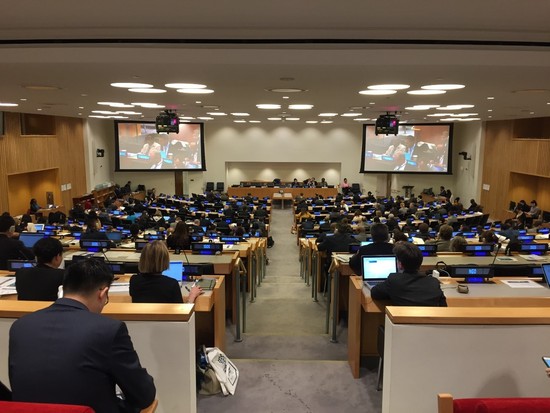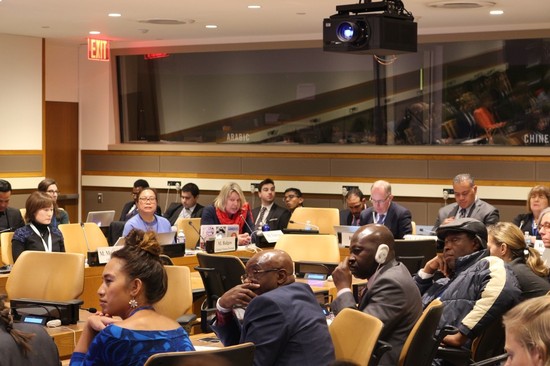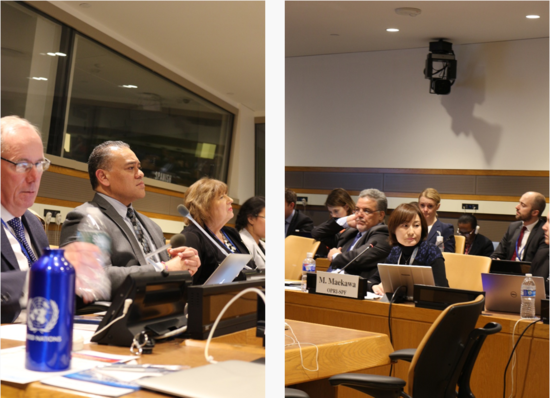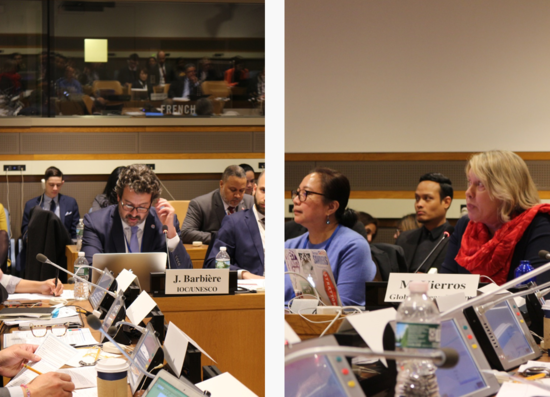News
Report on the Organizational Meeting for the Intergovernmental Conference on an International Legally Binding Instrument Under UNCLOS on the Conservation and Sustainable Use of Marine Biological Diversity of Areas Beyond National Jurisdiction (BBNJ)
The Organizational Meeting for the Intergovernmental Conference on an International Legally Binding Instrument Under the United Nations Convention on the Law of the Sea on the Conservation and Sustainable Use of Marine Biological Diversity of Areas Beyond National Jurisdiction (BBNJ) took place from April 16 - 18, 2018, at the United Nations Headquarters in New York. The meeting was held to discuss and take decisions on organizational matters ahead of the Intergovernmental Conference (*IGC) to be held in September 2018. The main outcomes of the meeting are as follows.
*Intergovernmental Conference on an international legally binding instrument under the United Nations Convention on the Law of the Sea on the conservation and sustainable use of marine biological diversity of areas beyond national jurisdiction (General Assembly resolution 72/249)

View of the discussions at the organizational meeting
Main Outcomes of the Meeting
To begin proceedings, delegates elected Rena Lee, Ambassador for Oceans and Law of the Sea Issues and Special Envoy of the Minister for Foreign Affairs of Singapore, as President of the IGC. Delegates then decided on the establishment of a bureau to assist the president, composed of the president and 15 vice presidents (three from each of the regional groups). It was also decided that the role of the bureau would be limited to procedural matters of the meeting, the vice presidents would serve in national capacity, and the same members would serve in their roles throughout the IGC process to ensure consistency. In addition to the plenary session, it was decided to establish subsidiary bodies as needed to conduct detailed discussions, without deciding on whether such bodies would be called "informal working groups" or other names. When convening discussions on the elements, the general consensus was that instead of adopting a "parallel meeting" style, meetings would be held sequentially, in an effort to ensure that discussions would not exclude delegations with smaller negotiating groups.
As to the first IGC (IGC-1) to be held in September 2018, President Lee outlined her intention to keep discussions on organizational matters at a minimum in order to focus discussions on substantive matters regarding BBNJ, and said that decisions on the 2019 conference calendar including the second IGC would be taken by the UN General Assembly. In addition, regarding the four main elements of the BBNJ IGC - marine genetic resources, including questions on the sharing of benefits; measures such as area-based management tools, including marine protected areas; environmental impact assessments; and capacity building and the transfer of marine technology - it was decided that discussions would be conducted in a flexible manner, regarding the time allocated for discussions on each element of the package. Based on the decisions of the BBNJ PrepComs that took place in 2016 and 2017, President Lee called for discussion on what could be included in an "Aid to Discussions" paper to be circulated by August 25, 2018, in order to highlight and summarize issues that require further discussion. Noting suggestions from the delegates, President Lee highlighted that the paper would be a starting point for further discussions on a zero draft for the conservation and sustainable use of BBNJ, that the paper would not contain treaty text, and may or may not contain a skeleton structure of the treaty.
Report on Side Event co-hosted by OPRI-SPF

View of the side event - Participants including speakers and government heads
Representing OPRI-SPF, Miko Maekawa (Manager and Senior Research Fellow) and Iwao Fujii (Associate Program Officer) gave an overview of the capacity development projects in the ocean field conducted by The Nippon Foundation and the Sasakawa Peace Foundation over the past 30 years. The overview focused on the achievements of the scholarship program implemented at the World Maritime University (WMU) which has been conducted in large scale, as well as challenges to tackle in the future.
The presentation materials from the side event are available here.

Suka Mangisi, Deputy Permanent Representative of the Kingdom of Tonga to the United Nations,
Biliana Cicin-Sain, President, GOF
(Right photo) Miko Maekawa, Manager and Senior Research Fellow, OPRI-SPF

(Left photo) Julian Barbiere, Head, Marine Policy and Regional Coordination Section, UNESCO-IOC (Right photo, from L) Miriam Bargos, Senior Associate, GOF; Marjo Vierros, Senior Associate, GOF